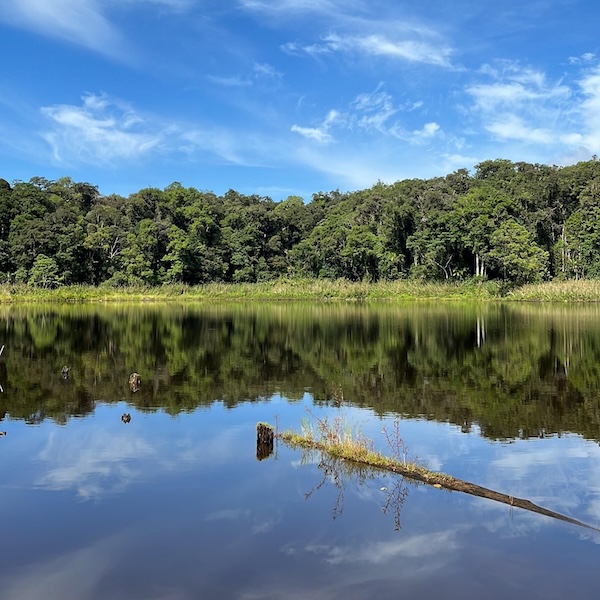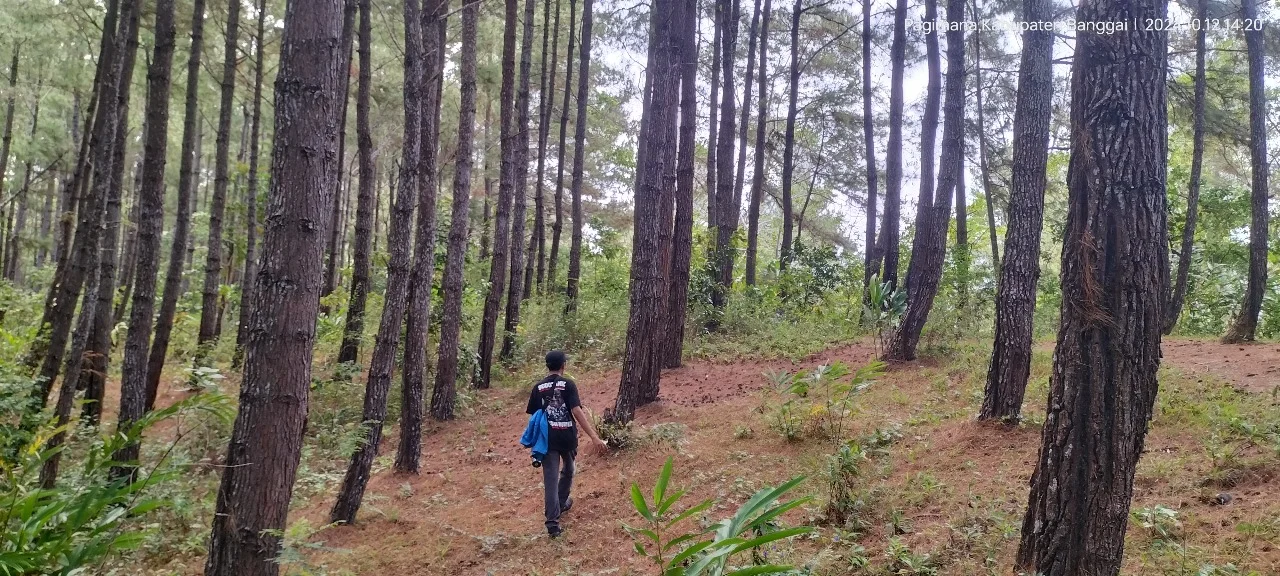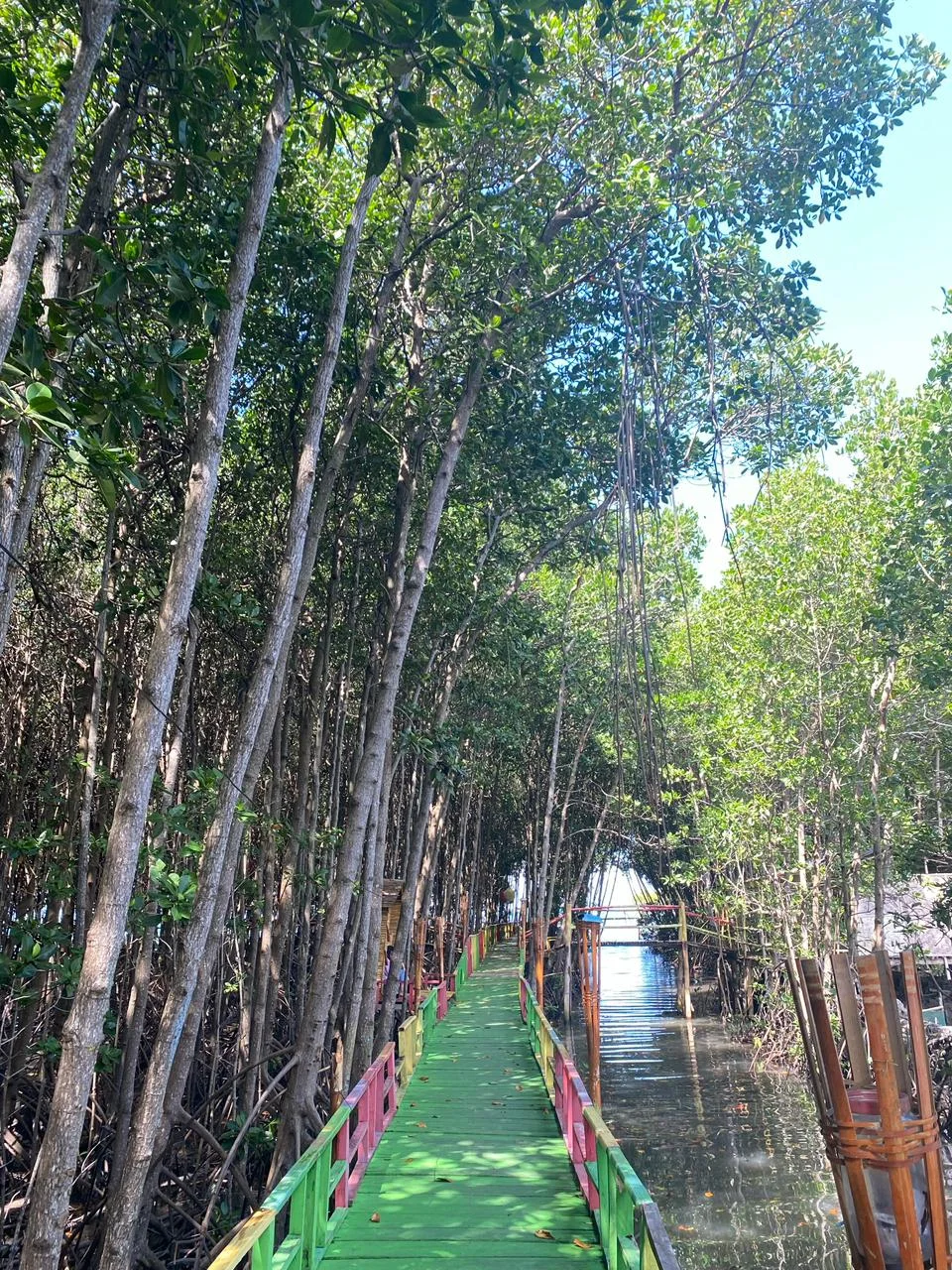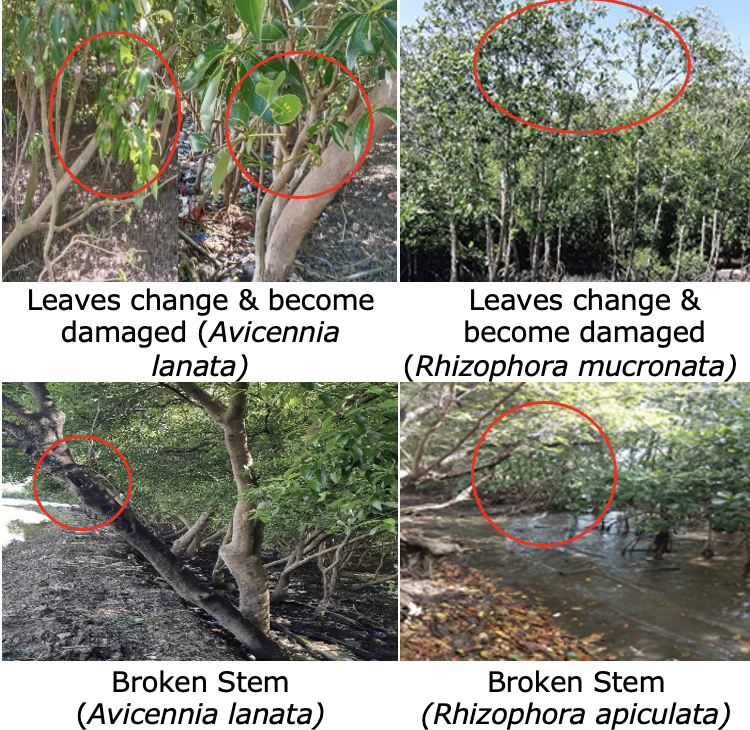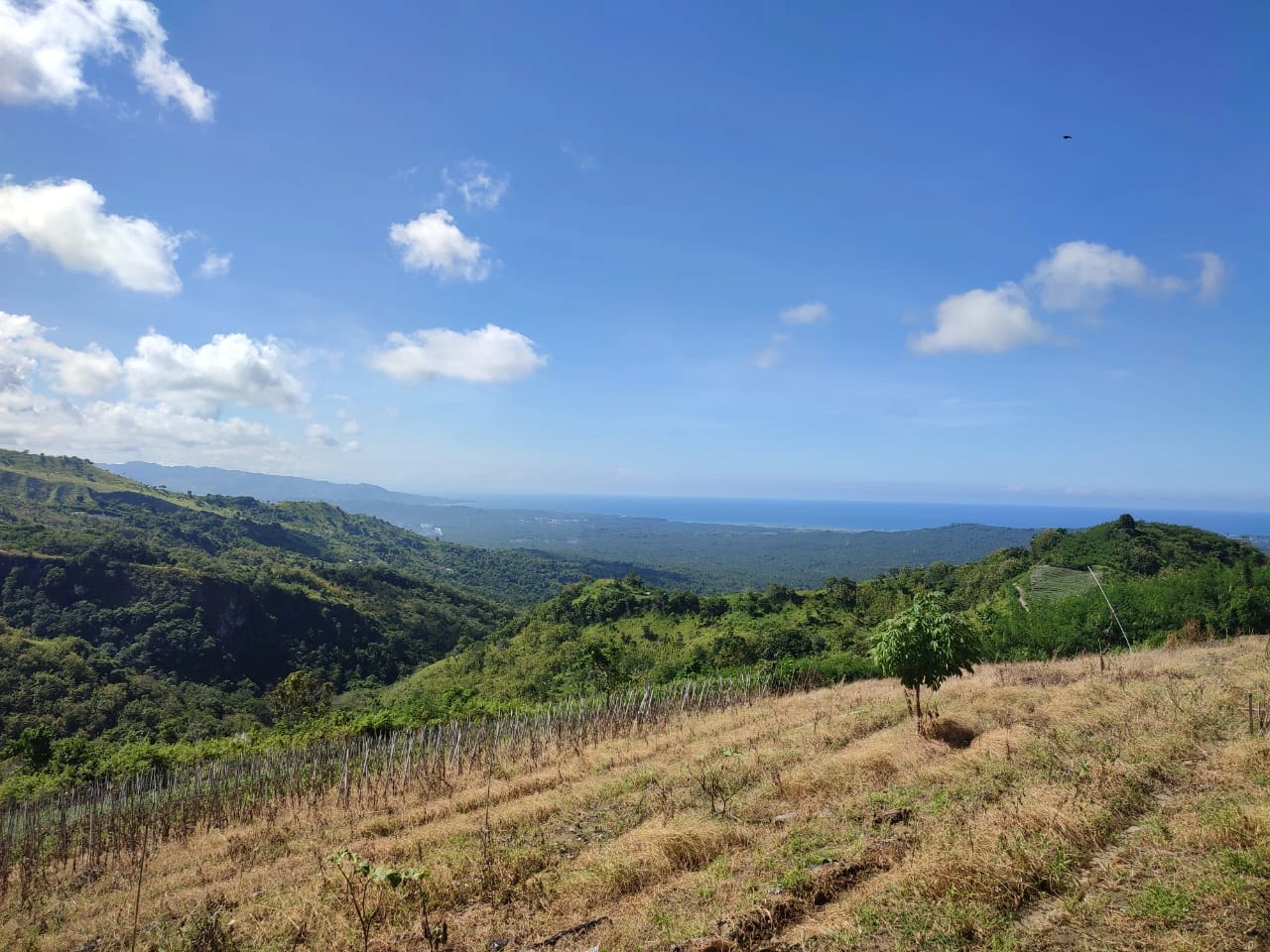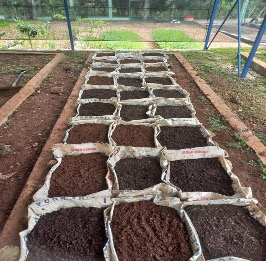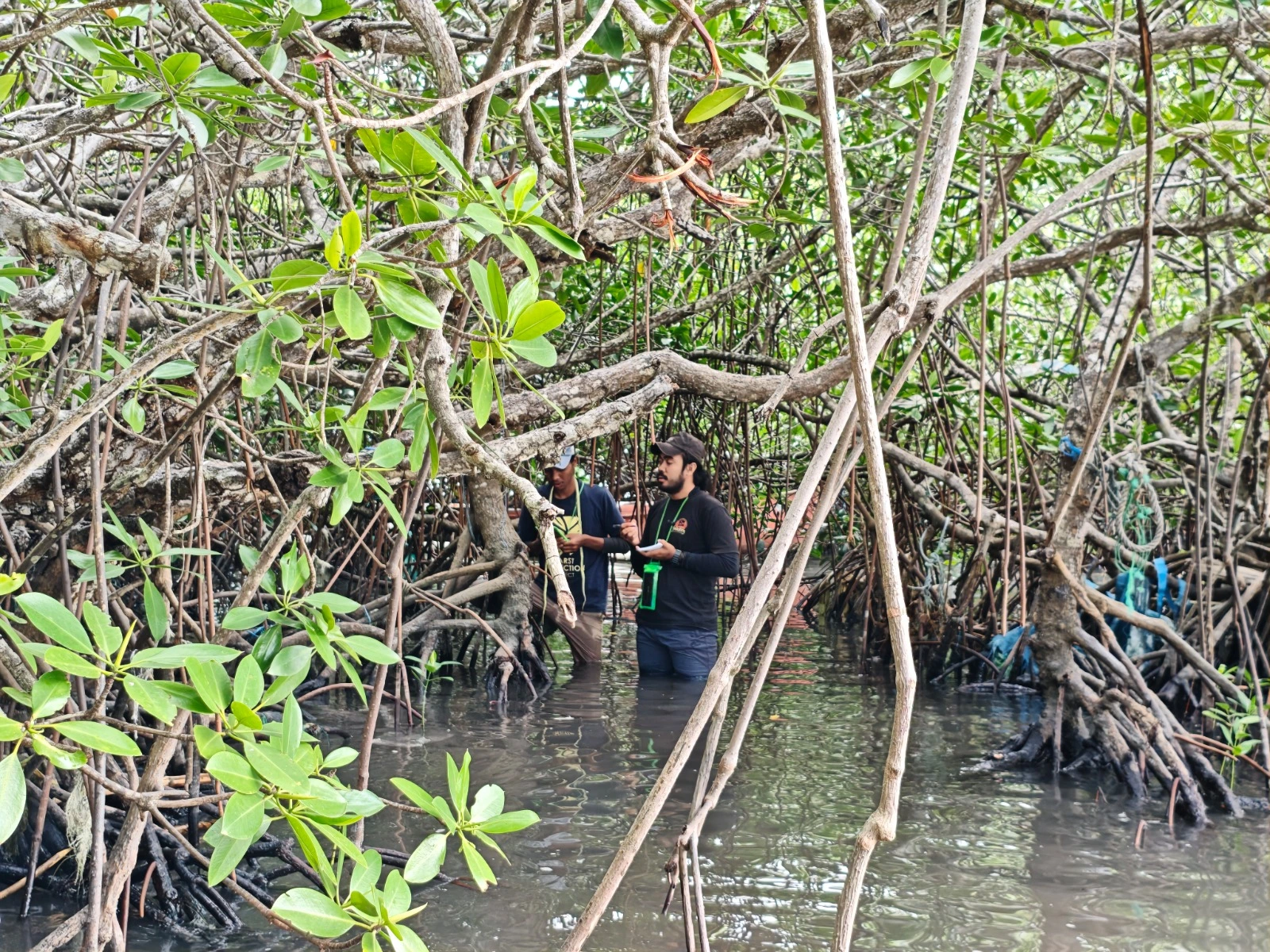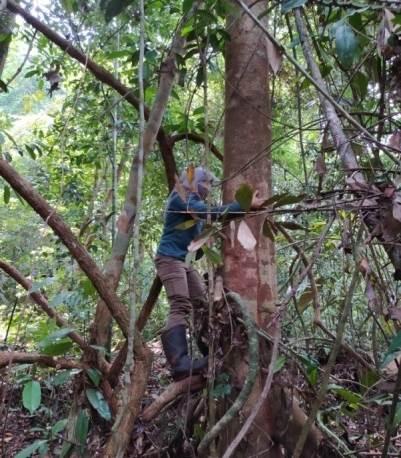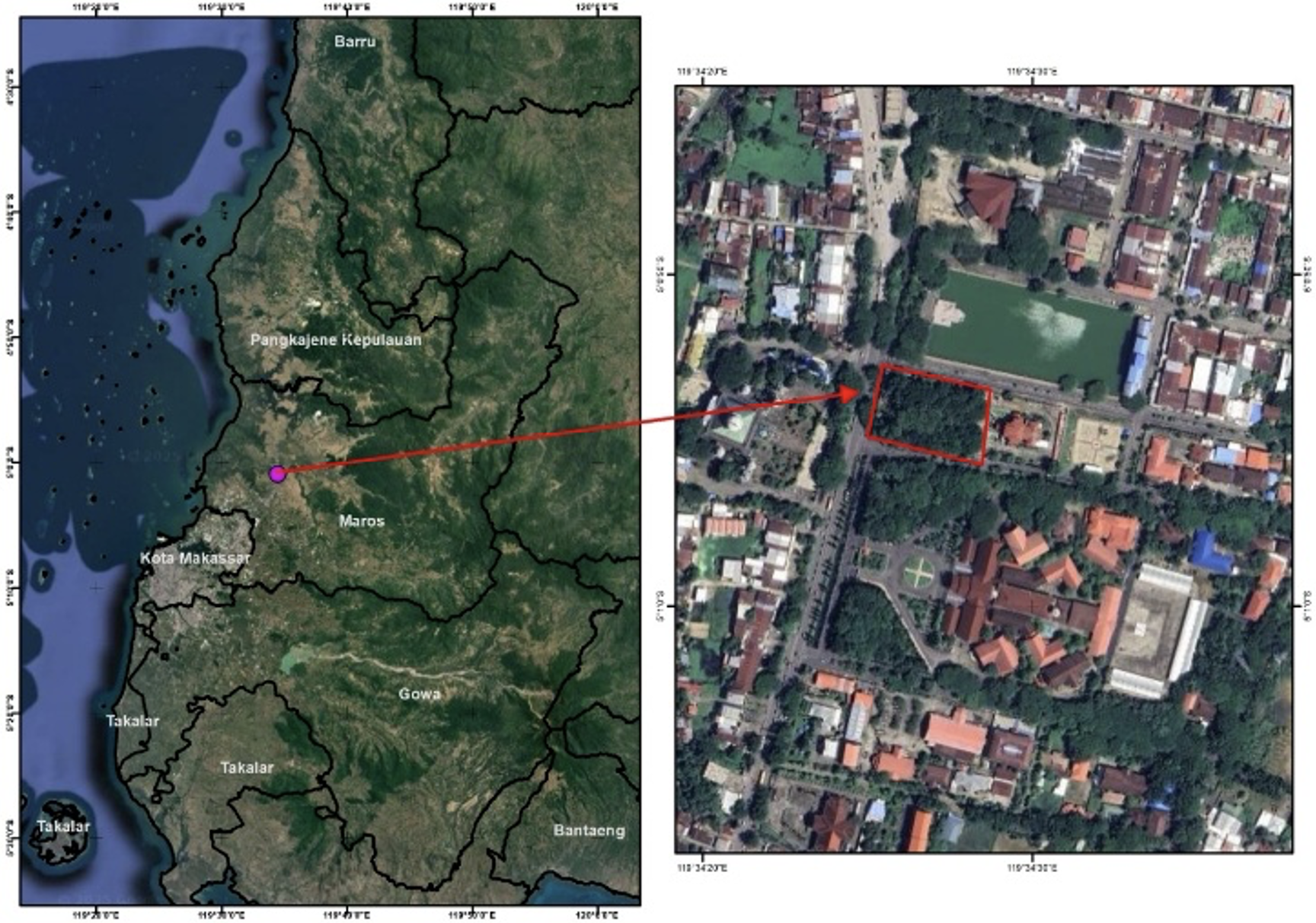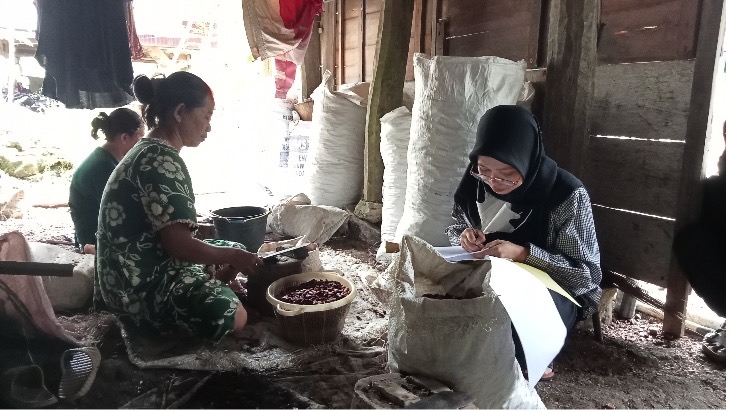Understanding Generation Z's Ecotourism Motivation and Perception in Central Sulawesi
Abstract
The emergence of Generation Z, which constitutes the majority of Indonesia's population, has the potential to drive national progress and promote environmental sustainability. This study aims to explore Generation Z's motivations toward ecotourism and examine their perceptions of ecotourism in Central Sulawesi. A qualitative research approach was employed, utilizing interviews and questionnaires as data collection methods. Respondents consisted of individuals from Generation Z (aged 11–27 years) residing in Central Sulawesi. Likert scale analysis was used to measure the level of motivation and perception among Generation Z regarding ecotourism. The findings reveal that Generation Z's motivation for ecotourism is influenced by both internal and external factors, with internal motivation being slightly more dominant (a difference of 0.23%). Furthermore, the study indicates that Generation Z's perception of ecotourism in Central Sulawesi reflects limited awareness and understanding of conservation values and environmental sustainability. Improvements in facilities and service quality were found to positively influence Generation Z's perception of ecotourism. The study concludes that enhanced development efforts can strengthen both motivation and perception, thereby increasing participation levels and fostering a positive impact on ecotourism.
1. INTRODUCTION
Tourism is a sector with significant social, economic, and ecological impacts. From the perspective of the Socio-Ecological System Framework (SESF) developed by (Ostrom, 2009), social and ecological systems in tourism interact with each other, creating a balance between economic interests, environmental sustainability, and the well-being of local communities. As a form of nature-based tourism, Ecotourism is a relevant approach in this context, by prioritizing the principles of conservation, education, and empowerment of local communities.
According to Law No. 10 of 2009 concerning Tourism, tourism is defined as travel activities undertaken by individuals or groups to visit specific destinations for recreational purposes, personal development, or to explore the unique attractions of the visited location for a temporary period. Currently, tourism activities are not solely focused on economic gains but are increasingly considering environmental aspects. One form of tourism that has gained popularity is ecotourism. Ecotourism refers to travel to natural areas aimed at protecting the environment, as well as the life and well-being of local communities (Izwar, 2017). According to (Cobbinah, 2015), the principles of ecotourism generally revolve around conservation, education, economic benefits, cultural preservation, and community participation.
Ecotourism development aims to enhance a destination's attractiveness to tourists. Seven indicators of ecotourism development exist, including environmental, economic, socio-cultural, religious, and policy aspects (Theingthae, 2017). According to Rajab et al. (2021), ecotourism development must be based on ecological conditions and the area's carrying capacity. Tourists visiting ecotourism sites must also understand and be aware of environmental conservation to preserve the ecosystem and biodiversity of the location.
Based on data from the Central Statistics Agency (BPS) in 2023, the number of domestic tourists in Central Sulawesi Province increased steadily from 2020 to 2022 following the pandemic. In 2020, the number of domestic tourists in Central Sulawesi reached 1.3 million, followed by an increase in the next two years to 1.7 million and 5.2 million tourists, respectively. This rise in tourist numbers aligns with government policies easing restrictions on outdoor activities. This presents an opportunity for both central and local governments to develop tourism potential to support the regional economy.
In ecotourism management, community involvement plays a positive and impactful role (Wahyuni et al., 2015). The role of the community in ecotourism management is facilitated by accommodating their perceptions and motivations toward ecotourism. The Push and Pull Motivation theory by (Crompton, 1979) categorizes tourism motivation into two main aspects: push factors, which stem from an individual's internal needs, and pull factors, such as the natural beauty and facilities available at the destination. Perception is one of the most important psychological aspects for humans in responding to various phenomena around them (Nugraha et al., 2018). Meanwhile, motivation is a determining factor in shaping a person's attitudes and actions (Keliwar & Nurcahyo, 2015). The stronger the push factors, the greater the motivation for someone to act.
Generation Z, born between 1996 and 2012 (Stillman & Stillman, 2017), is also known as the information and technology generation. Having grown up with technology, Generation Z is accustomed to accessing global information. This presents a challenge in environmental management to understand and enhance Generation Z's sensitivity to environmental conservation.
Ecotourism has become a popular form of tourism among Generation Z in recent years. The term "healing" is interpreted as an activity that reduces fatigue and boredom while providing space for personal rest (Hikmah et al., 2022). This activity involves visiting ecotourism sites, cultural tourism sites, or other destinations as an alternative to reducing stress.
A study on Generation Z's perceptions and motivations toward ecotourism in Central Sulawesi is necessary to align the tourism needs of the local community with their knowledge and awareness of environmental conservation in ecotourism areas. The scope of this study focuses on understanding Generation Z's perceptions of ecotourism and conservation values in Central Sulawesi, as well as identifying the key driving factors that motivate their visits to ecotourism sites in the region.
2. METHODS
Interviews were conducted with Generation Z individuals (born between 1995 and 2012) residing in 12 regencies and cities in Central Sulawesi Province. The questionnaire was designed to collect information on Generation Z's perceptions and motivations toward ecotourism in Central Sulawesi. Data were collected by distributing questionnaires to 50 respondents using a simple random sampling technique.
The questionnaire consisted of 12 questions related to perceptions and motivations. These questions covered various aspects, including visitors' perceptions of accessibility, facilities, entrance fees, travel purposes, and their perceptions of environmental conservation. Each question was assessed using a scoring system based on a Likert scale.
The evaluation of Generation Z's perceptions and motivation toward ecotourism was conducted using a 5-point Likert scale, where 1 = strongly disagree, 2 = disagree, 3 = neutral, 4 = agree, and 5 = strongly agree. The Likert scale has been widely used to assess visitor perceptions of ecotourism (Lalika et al., 2020). The Likert scale data were then converted into intervals to enable descriptive statistical analysis using a scale range formula (Equation 1) (Sugiono, 2010).
\[ RS = \frac{n(m - 1)}{n} \]
\[ RS = \frac{50(5 - 1)}{5} = 40 \]
Note:
Rs = scale range
n = number of sample
m = number of answare alternatives
Based on the equation above, the scale and scoring categories can be seen in Table 1.
Table 1. Scale for Respondents' Motivation and Perception

The results of the Likert scale were used for qualitative descriptive analysis. The assessment results were grouped and processed using the one-score, one-indicator technique, where one value was assigned to each question (Sari et al., 2020).
3. RESULT AND DISCUSSION
Respondent Characteristics
The respondents were from Generation Z, aged 11 to 27 years (born between 1996 and 2012). The distribution of respondents by age and gender is presented in Table 2.
Table 2. Respondent Characteristics

Based on the age frequency data, the majority of respondents (34 respondents or 68%) were in the 21–25 age group. Within this group, 23-year-olds were the most represented, with 13 respondents. The data also show an increasing percentage of respondents from the youngest to the older age groups.
Age is one of the factors influencing a person's tendency to travel. According to (Hudiono, 2022), age has a clear positive influence on a person's desire to travel. As individuals mature, they are more likely to choose travel destinations that are meaningful and beneficial to themselves and those around them. Older individuals tend to seek out tourist destinations that offer new and exciting experiences.
In terms of gender distribution, the percentages of male and female respondents were relatively similar, with 60% male and 40% female. This indicates that both genders have an equal tendency to be interested in ecotourism.
Motivation of Generation Z Towards Ecotourism
An individual's motivation for engaging in tourism generally arises from push and pull factors that influence their decision to travel. According to (Santoso and Kartika, 2018), motivation involves three types of perceptions when visiting a destination: individual perception, experience, and information about the tourism site. Motivation is categorised into two factors: internal and external factors.
Internal factors refer to intrinsic drives originating from the individual. These factors are related to a person's purpose in visiting an ecotourism site. Tourist motivation driven by internal factors is associated with physical, cultural, social, and status-related motivations (Hariyadi et al., 2021). The results of the analysis of Generation Z's internal motivation towards ecotourism are presented in Table 3.
Table 3. Internal Motivation of Generation Z Towards Ecotourism

Note: SD = Strongly disagree D = Disagree, N = Neutral, A = Agree, SA = Strongly agree
The analysis of tourist motivation based on several internal motivation indicators reveals diverse findings. As shown in Table 3, Generation Z exhibits a strong inclination towards physical motivation as a primary reason for visiting ecotourism destinations. The total score for physical motivation is 233, with 35 respondents strongly agreeing that this factor is relevant to their ecotourism motivation. The key aspects driving Generation Z’s visits to ecotourism sites include seeking recreation, alleviating boredom, enjoying natural beauty, and experiencing a new environment.
According to (Sabila and Purwanti, 2019), the primary physical motivation for visiting ecotourism destinations is the desire to alleviate boredom. Additionally, tourists are drawn to ecotourism sites to appreciate natural beauty and the authenticity and sustainability of these environments. As noted by (Anggela et al. 2017), tourist perceptions of an ecotourism site's attractiveness are often shaped by scenic landscapes, fresh air, and the preserved natural environment. These aspects contribute to Generation Z's ability to experience relaxation and relief from the stress of daily routines.
Conversely, status motivation does not significantly influence Generation Z’s ecotourism preferences. Activities related to hobbies and social status are not typically associated with ecotourism. This is evident from the status motivation category receiving the lowest score (207) among all internal motivational factors, with only 24 individuals (<50%) strongly agreeing with this motivation. This finding aligns with the behaviour of Generation Z, whose daily activities heavily involve digital devices for social interaction. In remote ecotourism locations, where network access is limited, engaging in such activities becomes challenging. As a result, status-driven tourism ranks the lowest among Generation Z’s internal motivations. Tourists visiting ecotourism sites are more inclined towards environmental appreciation, nature exploration, and educational experiences. In contrast, status-based tourism is closely linked to exclusive services and luxurious amenities, which are not typical of ecotourism settings.
In addition to internal factors, external factors also influence Generation Z’s motivation to engage in ecotourism. External factors refer to attractions that originate outside the individual and shape their decision-making process. According to (Anggela et al. 2017), these factors include tourist attractions, accessibility, facilities, and additional services provided by stakeholders, all of which play a crucial role in influencing visitors’ choices. The analysis of Generation Z’s external motivation for ecotourism is presented in Table 4.
Tabel 4. Motivasi eksternal Generasi Z terhadap ekowisata

Note: SD = Strongly disagree, D = Disagree, N = Neutral, A = Agree, SA = Strongly agree
Based on Table 4, the most influential external motivation factor for Generation Z in ecotourism is attraction. The attraction motivation received the highest total score of 232, with 32 individuals (64%) strongly agreeing with this indicator. Generation Z tends to be drawn to tourism attractions that offer scenic natural beauty, well-preserved environments, fresh air, and a strong aesthetic appeal. Among the 50 respondents, only two response alternatives were selected regarding attraction motivation: agree (18 individuals) and strongly agree (32 individuals). This finding indicates that nearly all Generation Z respondents strongly resonate with this pull factor.
According to (Krisnadevi et al. 2020), natural attractions significantly influence visitors’ travel decisions, with tourists’ appreciation of natural beauty being a key motivator for engaging in ecotourism. Similarly, (Rani et al. 2020) found that an unspoiled natural environment is a crucial attraction that drives ecotourism motivation. The importance of attraction motivation is further reinforced in various studies, which highlight that attractions serve as a major pull factor encouraging tourists to visit ecotourism destinations.
Beyond attraction, other external motivations such as accessibility, ancillary services, and amenities also play a role in Generation Z’s decision to engage in ecotourism. The total scores for these factors are 218, 215, and 198, respectively. However, the availability of adequate facilities is not a top priority for Generation Z when choosing an ecotourism destination. This is evident in the data, where only 21 individuals (42%) strongly agreed with this factor, while 14% of respondents expressed disagreement (disagree option).

Figure 1. Comparasion on Internal and External motivation in Ecotourism
Based on Figure 1, it is evident that internal motivation has a slightly greater influence on Generation Z’s ecotourism preferences. The average response score for internal motivation is 4.33, compared to 4.32 for external motivation, resulting in a minimal difference of 0.01 points or 0.23%. This indicates that, for Generation Z, intrinsic motivation tends to have a stronger impact than external pull factors when deciding to engage in ecotourism. However, the small difference suggests that external motivation is also an important consideration, albeit not the primary determinant in their ecotourism choices.
Preferensi generasi Z terhadap ekowisata di Sulawesi Tengah
A study on Generation Z’s ecotourism preferences in Central Sulawesi Province assessed several ecotourism sites in the region, which served as reference points for respondents in evaluating their perceptions of ecotourism. The destinations listed in the questionnaire included Rano Kalimpaa/Tambing Lake (Poso Regency), Mount Nokilalaki Hiking Trail (Sigi Regency), Wera Nature Tourism Park (Sigi Regency), Bancea Nature Tourism Park at Poso Lake (Poso Regency), Malenge and Papan Islands in the Togean Archipelago (Tojo Una-Una Regency), and Mariona Lake in the Togean Archipelago (Tojo Una-Una Regency). In addition to these predefined options, respondents were allowed to mention other ecotourism destinations they had visited at least twice a year.
Based on the survey responses from Generation Z in Central Sulawesi, Figure 2 presents the distribution of the three most frequently visited ecotourism locations, based on the number of individuals who had visited these sites at least twice a year.
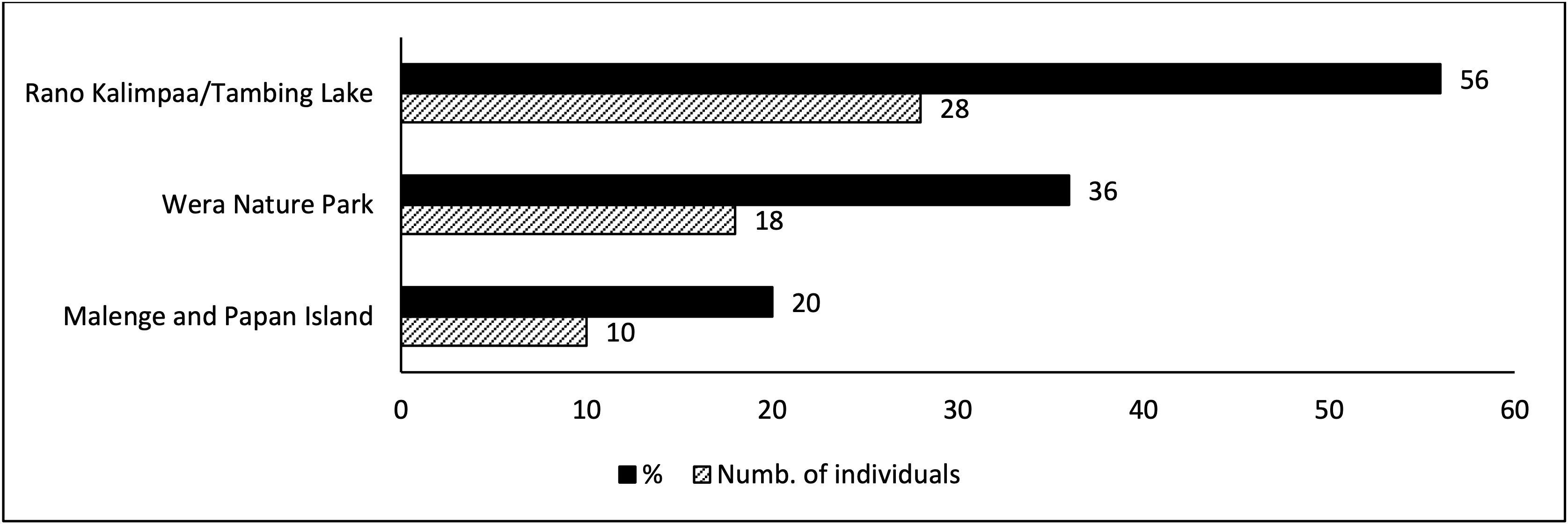
Figure 2. Generation Z's ecotourism location preferences
Based on Figure 2, it is evident that Rano Kalimpaa/Tambing Lake is the most preferred ecotourism destination, attracting 46% of Generation Z respondents (23 out of 50 individuals). The second and third most visited locations, based on a visitation frequency of twice a year, are Wera Nature Tourism Park and Malenge and Papan Islands, which were preferred by 18% and 12% of respondents, respectively.
An analysis of Generation Z’s preferences for ecotourism destinations highlights several push factors that influence their choice of ecotourism sites. These motivational factors shaping their preferences are presented in Figure 3.

Figure 3. Factors that determine Generation Z's preferences for ecotourism
Based on Figure 3, it is evident that the attractiveness of ecotourism destinations is the most influential factor driving Generation Z’s decision to visit ecotourism sites. The natural beauty and well-preserved ecosystems are key indicators that attract Generation Z to these locations. A total of 44 out of 50 respondents (88%) selected ecotourism attractions as their primary preference when choosing a destination.
According to (Sari et al. 2020), cool temperatures and scenic landscapes are the most influential elements of ecotourism attractiveness compared to other factors. A well-preserved environment provides fresh air and a pleasant climate, enhancing visitors’ comfort when exploring ecotourism sites. Moreover, the natural beauty offers a refreshing contrast to the daily routines of Generation Z, who are accustomed to digital interactions and virtual environments.
Generation Z's perception of ecotourism
The analysis of Generation Z’s perception of ecotourism reveals that there are four key indicators used in their assessment. The indicators and corresponding results of Generation Z’s perceptions of ecotourism are presented in Table 5.
Tabel 5. Generation Z's perception of ecotourism

Note: SD = Strongly disagree, D = Disagree, N = Neutral, A = Agree, SA = Strongly agree
The findings from Table 5 reveal four statements, with two classified as positive and two as negative. These statements depict potential scenarios related to ecotourism management and Generation Z’s responses to such situations. Generation Z’s perception of ecotourism in Central Sulawesi highlights two key aspects: awareness of environmental conservation and the need for adequate facilities. These aspects are both recognised and considered essential by Generation Z when engaging in ecotourism in the region.
The positive statements reflect attitudes that prioritise environmental protection and the preservation of conservation areas in accordance with their ecological function. The results indicate that 54% of Generation Z agree that the ecosystems at ecotourism sites in Central Sulawesi remain well-preserved. Thus, ecotourism managers must continue their efforts to maintain ecosystem integrity, ensuring the sustained natural beauty of these locations. A well-preserved ecosystem supports biodiversity and helps regulate climate conditions, both of which are crucial for ecotourism sustainability. Additionally, the availability of adequate facilities is a recognised necessity among Generation Z. The data show that 54% of respondents strongly agree that developing facilities at ecotourism sites is essential to attracting visitors, provided that ecological considerations are upheld. However, infrastructure development must be carefully assessed to minimise threats to biodiversity and ecological balance.
The negative statements illustrate two concerns: the development of ecotourism infrastructure at the expense of ecological integrity and negative visitor experiences in Central Sulawesi’s ecotourism destinations. The results indicate that 26% of respondents agree, and another 26% strongly agree, that infrastructure development should be prioritised even if it compromises ecological aspects. This perspective underscores the need for stakeholders to conduct awareness campaigns on conservation values targeted at Generation Z. A lack of understanding of conservation principles may contribute to a diminished sense of environmental responsibility. Therefore, innovative and modern educational approaches should be employed to enhance Generation Z’s awareness of conservation ethics.
Regarding negative ecotourism experiences, 26 respondents reported having no negative experiences, but 8 respondents agreed and 6 strongly agreed that they had experienced poor ecotourism conditions. This finding highlights the importance of ensuring high-quality services and safety measures to enhance visitor comfort and satisfaction. According to (Ariani & Hayati, 2020), ecotourism knowledge is essential for achieving a balance between humans and nature, thereby preventing ecosystem and cultural degradation. Engaging younger generations in conservation efforts is a strategic approach to ensuring the sustainable preservation of biodiversity and natural resources.
4. Conclusion
Based on the study conducted, the data indicate that the majority of respondents were male (58%), while female respondents accounted for 42%. However, the findings suggest that gender does not significantly influence interest in ecotourism.
In terms of internal motivation, physical motivation—which includes seeking recreation, alleviating boredom, and experiencing nature—was the most dominant factor. Conversely, status-based motivation, such as seeking social recognition or personal prestige, had the least influence on Generation Z’s ecotourism engagement. Regarding external motivation, the primary factor driving Generation Z’s ecotourism choices was the attractiveness of ecotourism destinations, particularly natural beauty and environmental preservation.
The study also revealed clear preferences among Generation Z for ecotourism in Central Sulawesi. The most preferred destination was Rano Kalimpa’a. The key determinant influencing this preference was the appeal of an authentic and unspoiled natural experience, rather than facilities or accessibility factors.
While this study provides valuable insights into Generation Z’s ecotourism motivations and preferences, further research is needed to examine the socio-economic factors influencing their ecotourism behaviour and to assess the long-term environmental impact of ecotourism on Generation Z’s attitudes and behaviours toward conservation. Understanding these aspects would help in developing more sustainable ecotourism strategies that align with both visitor expectations and environmental conservation goals.
5. Author contributions
AR contributed to the writing of the scientific paper and data analysis. FM contributed to the research design, data analysis, and manuscript writing. DAGS contributed to the scientific paper's writing.
6. Competing Interest
All authors declare that there is no conflict of interest in the writing of this scientific paper or during the research process.
7. Acknowledgements
The authors express their gratitude to all respondents who participated in this research, as well as to all parties who supported this study.
8. References
Anggela, M. M., Karini, N. M. O., & Wijaya, N. M. S. (2017). Persepsi dan motivasi wisatawan yang berkunjung ke daya tarik wisata Jembong di Kabupaten Buleleng. Jurnal IPTA, 5(2), 76–91. https://doi.org/10.24843/IPTA.2017.v05.i02.p01
Ariani, R. R., & Hayati, M. (2020). Persepsi daya dukung ekowisata bahari Pulau Mandangin Kabupaten Sampang. Agriscience, 1(1), 244–259. http://journal.trunojoyo.ac.id/agriscience
Cobbinah , P. B. (2015). Contextualising the meaning of ecotourism. Tourism Management Perspectives, 16, 179–189. https://doi.org/10.1016/j.tmp.2015.07.015
Crompton, J. L. (1979). Motivations for pleasure vacation. Annals of Tourism Research, 6(4), 404–428. https://doi.org/10.1016/0160-7383(79)90004-5
Hariyadi, B. R., Supriadi, N., Tjaturrini, D., & Firmansyah, D. B. (2021). Motivasi wisatawan tentang Daya Tarik Wisata (DTW) terhadap minat kunjungan kembali di Camp Area Umbul Bengkok (CAUB). Melancong: Jurnal Perjalanan Wisata, Destinasi, Dan Hospitalis, 4(1), 10–31. https://journal.unj.ac.id/unj/index.php/melancong/issue/view/1349
Hikmah, N., Fauziyah, N. K., Septiani, M., & Lasari, D. M. (2022). Healing sebagai strategi Coping Stress melalui pariwisata. Indonesian Journal of Tourism and Leisure, 3(2), 113–124. https://doi.org/10.36256/ijtl.v3i2.308
Hudiono, R. (2022). Pengaruh jenis kelamin dan usia terhadap kecenderungan berwisata selama pandemi COVID-19. Jurnal Manajemen Perhotelan Dan Pariwisata, 5(2), 123–128. https://doi.org/10.23887/jmpp.v5i2.50060
Izwar. (2017). Persepsi pengunjung ekowisata Pulau Reusam terhadap masyarakat pengelola kawasan ekowisata dalam rangka pengembangan kawasan ekowisata secara berkelanjutan. Jurnal Bionatural, 4(1), 1–12. https://ejournal.uncm.ac.id/index.php/bio/index
Keliwar, S., & Nurcahyo, A. (2015). Motivasi dan persepsi pengunjung terhadap obyek wisata Desa Budaya Pampang di Samarinda. Jurnal Manajemen Resort Dan Leisure, 12(2), 10–27. https://doi.org/10.17509/jurel.v12i2
Krisnadevi, D. A. P. P., Sudiarta, I. N., & Suwena, I. K. (2020). Preferensi dan persepsi wisatawan mancanegara ke Nusa Penida, Klungkung. Jurnal IPTA, 8(1), 18–23. https://doi.org/10.24843/IPTA.2020.v08.i01.p03
Lalika, H. B., Herwanti, S., Febryano, I. G., & Winarno, G. D. (2020). Persepsi pengunjung terhadap pengembangan ekowisata Kebun Raya Lima. Jurnal Belantara, 3(1), 25. https://doi.org/10.29303/jbl.v3i1.191
Nugraha, A., Sutjahjo, S. H., & Amin, A. A. (2018). Persepsi dan partisipasi mayarakat terhadap pengelolaan sampah rumah tangga melalui bank sampah di Jakarta. Jurnal Pengelolaan Sumberdaya Alam Dan Lingkungan (Journal of Natural Resources and Environmental Management), 8(1), 7–14. https://doi.org/10.29244/jpsl.8.1.7-14
Ostrom, E. (2009). A general framework for analyzing sustainability of Social-Ecological Systems. Science, 325,419-422(2009). https://doi.org/10.1126/science.1172133
Rajab, M. A., Oruh, S., & Agustang, A. (2021). Persepsi masyarakat lokal terhadap ekowisata mangrove Kuri Caddi Desa Nisombalia Kabupaten Maros. Pepatudzu: Media Pendidikan Dan Sosial Kemasyarakatan, 17(2), 166. https://doi.org/10.35329/fkip.v17i2.2695
Rani, F. P., Kusuma, H. E., & Tampubolon, A. C. (2020). Hubungan motivasi, kegiatan, dan karakter tempat wisata pada Pusaka Saaujana Imogiri Yogyakarta. JUMPA, 6(2), 470–495. https://doi.org/10.24843/JUMPA.2020.v06.i02.p11
Sabila, F. W., & Purwanti, E. Y. (2019). Pendakian di Jawa Tengah: Motivasi ekowisata dan perilaku wisatawan. Jurnal Dinamika Ekonomi Pembangunan, 2(3), 67–86. https://doi.org/10.14710/jdep.2.3.67-86
Santoso, S., & Kartika, L. N. (2018). Motivasi dan perilaku wisatawan generasi muda saat berwisata di Yogyakarta. Jurnal Riset Manajemen Dan Bisnis, 13(1), 47–58. ttps://doi.org/10.21460/jrmb.v13i1.165
Sari, N. N., Winarno, G. D., Harianto, S. P., & Fitriana, Y. R. (2020). Analisis potensi dan persepsi wisatawan dalam implementasi sapta pesona di Objek Wisata Belerang Sempur Desa Kecapi. Jurnal Belantara, 3(2). https://doi.org/10.29303/jbl.v3i2.503
Stillman, D., & Stillman, J. (2017). Gen Z Work ([edition unavailable]). HarperCollins. Retrieved from https://www.perlego.com/book/587904/gen-z-work-pdf (Original work published 2017)
Theingthae, S. (2017). Sustainability of community based ecotourism development after the impact of tsunami disasters: Comparison between buddhism community and muslim community in Phuket Province, Thailand. Journal of Tourism Research & Hospitality, 06(04). https://doi.org/10.4172/2324-8807.1000175
Wahyuni. S, B. Sulardiono, and B. Hendrarto, "Strategi Pengembangan Ekowisata Mangrove Wonorejo, Kecamatan Rungkut Surabaya," Management of Aquatic Resources Journal (MAQUARES), vol. 4, no. 4, pp. 66-70, Oct. 2015. https://doi.org/10.14710/marj.v4i4.9775
##submission.copyrightStatement##
##submission.license.cc.by4.footer##Copyright and License
All articles published in Wasian Journal are the property of the authors. By submitting an article to Wasian Journal, authors agree to the following terms:
-
Copyright Ownership: The author(s) retain copyright and full publishing rights without restrictions. Authors grant the journal the right to publish the work first and to distribute it as open access under a Creative Commons Attribution 4.0 International License (CC BY 4.0).
-
Licensing: Articles published in Wasian Journal are licensed under a Creative Commons Attribution 4.0 International License (CC BY 4.0). This license allows others to share, copy, and redistribute the material in any medium or format, and adapt, remix, transform, and build upon the material for any purpose, even commercially, provided that proper credit is given to the original author(s) and the source of the material

This work is licensed under a Creative Commons Attribution 4.0 International License. -
Author's Rights: Authors are permitted and encouraged to post their work online (e.g., in institutional repositories or on their website) prior to and during the submission process, as it can lead to productive exchanges and greater citation of published work.
-
Third-Party Content: If your article contains material (e.g., images, tables, or figures) for which you do not hold copyright, you must obtain permission from the copyright holder to use the material in your article. This permission must include the right for you to grant the journal the rights described above.
-
Reprints and Distribution: Authors have the right to distribute the final published version of their work (e.g., post it to an institutional repository or publish it in a book), provided that the original publication in Wasian Journal is acknowledged.
For the reader you are free to:
- Share — copy and redistribute the material in any medium or format for any purpose, even commercially.
- Adapt — remix, transform, and build upon the material for any purpose, even commercially.
- The licensor cannot revoke these freedoms as long as you follow the license terms.
Under the following terms:
- Attribution — You must give appropriate credit , provide a link to the license, and indicate if changes were made . You may do so in any reasonable manner, but not in any way that suggests the licensor endorses you or your use.
- No additional restrictions — You may not apply legal terms or technological measures that legally restrict others from doing anything the license permits.
Notices:
You do not have to comply with the license for elements of the material in the public domain or where your use is permitted by an applicable exception or limitation .
No warranties are given. The license may not give you all of the permissions necessary for your intended use. For example, other rights such as publicity, privacy, or moral rightsmay limit how you use the material.

